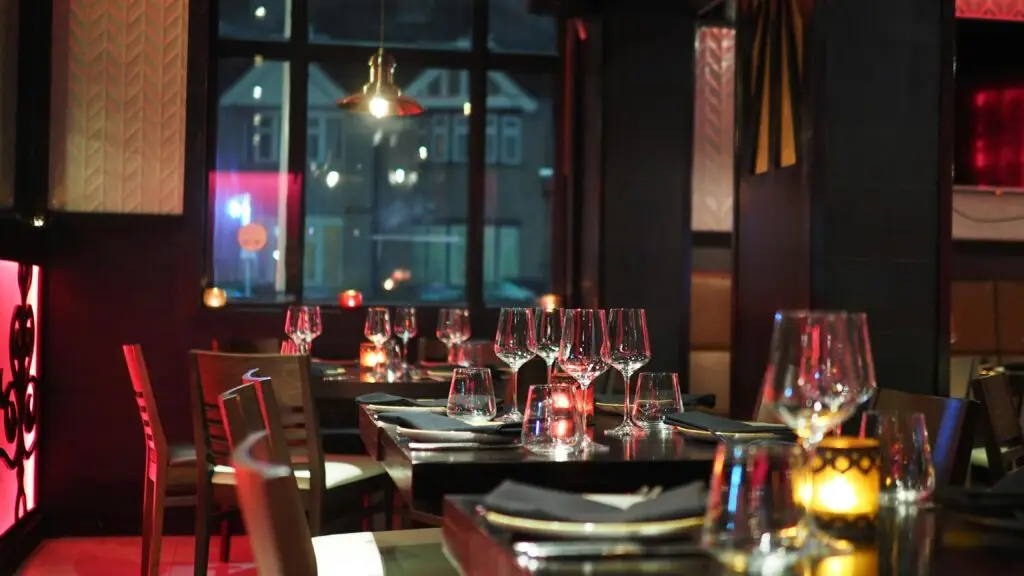The beginning of any restaurant business is an exhilarating journey. If you’ve always wanted a restaurant, the first question that comes to mind: Is it better to own a franchise or an independent one? This decision is monumental, and one must understand both dimensions at a basic level. In this blog, I will present it in the simplest way so everyone can comprehend.
What is a Restaurant Franchise?
A franchise is when one purchases the rights to operate a restaurant under an established brand. In this case, the name, the menu, and all other things that made the restaurant famous are exactly what is in the franchise. Names like McDonald’s, Subway, or Pizza Hut are examples of franchise restaurants.
When you open a franchise, you don’t start from zero. The brand is already known to many people. But you still have to follow specific rules and guidelines as a franchise owner.
Restaurant Franchise: The Pros
1. Brand Recognition
A franchise can be a smart investment because it has strong brand recognition. If you opened a McDonald’s, your customers would likely already know the food and service offered. Thus, the process of customer attraction would be that much easier.
2. Proven Business Model
A franchise already establishes a tested and proven system that works. It provides training, recipes, and marketing strategies. This makes running a successful restaurant easier. This would save you considerable time and reduce the chances of failure.
3. Marketing Support
These franchise companies mostly provide marketing support. Marketing support means they help advertise and promote their franchises. You do not need to completely change your approach to attracting customers. You love big ad campaigns that reach customers all over the country or even worldwide for your franchise.
4. Easier to Get Funding
Banks and investors will prefer to lend money to franchise owners because the business model is proven. Franchises, they think, are safer than independent restaurants.
Restaurant Franchise: The Cons
1. High Initial Costs
Opening a franchise is costly. A franchise fee can be hundreds of thousands or millions of dollars. Starting a franchise also comes with other costs. This includes training and equipment.
2. Ongoing Fees
Franchise owners pay royalties to the franchise company. This is usually a percentage of their sales. Hence, part of their profits flows to the franchise company every month.
3. Less Freedom
Opening a franchise restaurant limits your decision-making freedom. You must follow specific rules and regulations. The franchise restaurant does not allow you to choose your menu, prices, or how you run things. In this business, everything must be done right with the franchiser’s approval.
What is an Independent Restaurant?
An independent restaurant, as the name suggests, is one that you create and run by yourself.
It isn’t part of a big chain. This gives you full control over everything. You have a say over the menu, the layout of the restaurant, and even how to market your establishment.
Independent Restaurant: The Pros
1. Full Control
An independent restaurant means you are in charge. You can select the menu, fix the prices, and design the restaurant in whatever way you want. There are no franchise regulations to abide by.
2. Creativity and Flexibility
An independent restaurant would be most conducive to your creative impulses. You can change the menu whenever you like. Explore new recipes or craft a unique experience that showcases your personality and vision.
3. No Royalties or Ongoing Fees
Independent restaurant owners do not pay royalties or fees to a parent company. This sets them apart from franchise owners. All profits remain with the business, which can ensure you a better income in the long run.

4. Stronger Local Connection
Independent restaurants can build strong connections with their local communities. Since you are not tied to the corporate brand, you can focus on local customers. This way, you can create a restaurant that they truly enjoy.
Independent Restaurant: The Cons
1. Harder to Attract Customers
One of the prime challenges faced by independent restaurants is the development of brand recognition. People may not know your restaurant at first, as it is not a franchise. You will have to push marketing efforts hard to build a strong brand that will attract customers.
2. Riskier
Opening an independent restaurant is riskier as it is something untested in one’s business model. Be ready for mistakes and trials to see what works for your restaurant; this can be a lot of work and stress.
3. No Training or Support
Unlike franchisees, independent restaurant owners do not receive training and support from a larger company. It is all about how to run the business, hire workers, and manage the finances.
4. Limited Resources
Independent restaurants can’t buy in bulk like big franchises. So, they often miss out on discounts from suppliers and marketers. Hence, it becomes even harder to compete with the larger players in the industry.
Franchise vs. Independent Restaurant
Since we know the perks and downsides of both, it is easier for you to judge which method might work better for you:
Factor | Franchise Restaurant | Independent Restaurant |
Brand Recognition | Established brand known by many people | No built-in recognition, needs effort to build a brand |
Initial Cost | High initial investment (franchise fee, setup) | Can vary but may be lower than a franchise, depending on size |
Training and Support | Extensive training and ongoing support from the franchisor | No formal training or support; you manage everything |
Business Model | Proven and tested system | You create your own system and test what works |
Marketing | National or international marketing support | You must create and manage your own marketing efforts |
Control Over Operations | Limited control; must follow franchisor guidelines | Full control; you make all the decisions |
Menu and Pricing | Fixed menu and pricing set by the franchisor | Freedom to create your own menu and set your own prices |
Ongoing Fees | Royalties and other fees paid to the franchisor | No ongoing fees to pay (unless paying for third-party services) |
Creativity | Limited creativity due to standardization | High creativity and flexibility to innovate |
Risk Level | Lower risk due to a proven model and established brand | Higher risk, as the business model and brand are untested |
Operational Flexibility | Less flexibility in decision-making | Full flexibility in operations, from staff to menu changes |
Support from Parent Company | High support (training, marketing, etc.) | No support; you handle everything yourself |
Customer Base | Immediate customer base due to brand recognition | Must build a customer base from scratch |
Profit Sharing | Must share profits with the franchisor | Keep all profits to yourself |
Conclusion
Both types of restaurants have their advantages and disadvantages. The choice between the two depends on individual goals, experience, and preferences. If you want a great system, lessen the risk: franchise.
If you need more freedom and a more creative outlet, then an independent restaurant is the way to go. Now consider where you see yourself long-term, for that is where the wise choice lies.
Frequently Asked Questions
Can I own multiple franchise locations?
Yes, many franchise owners expand by owning multiple locations. However, this often requires significant investment and meeting specific franchise requirements.
How long does it take to open a franchise?
Opening a franchise typically takes anywhere from 6 to 12 months, depending on the location, construction, and approval process.
Can I change the restaurant's menu in a franchise?
No, the menu and recipes are set by the franchisor. You must follow their guidelines for consistency across all locations.
How do I fund an independent restaurant?
Funding for an independent restaurant can come from personal savings, loans, investors, or crowdfunding. You’ll need to create a strong business plan to attract potential investors.
What are the risks of owning an independent restaurant?
The risks include no brand recognition, high competition, and the possibility of financial loss if the business doesn’t attract enough customers or manage costs effectively.



